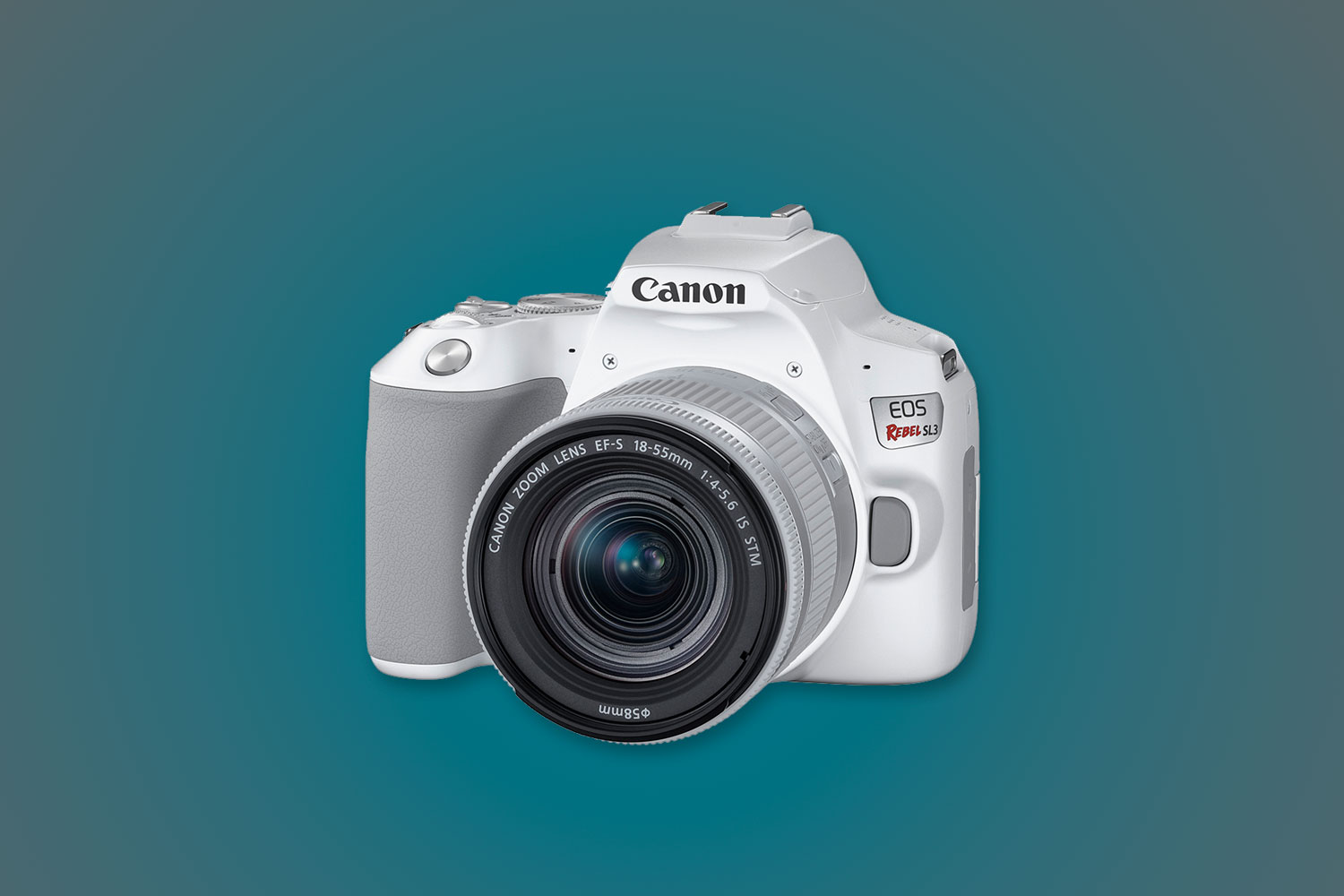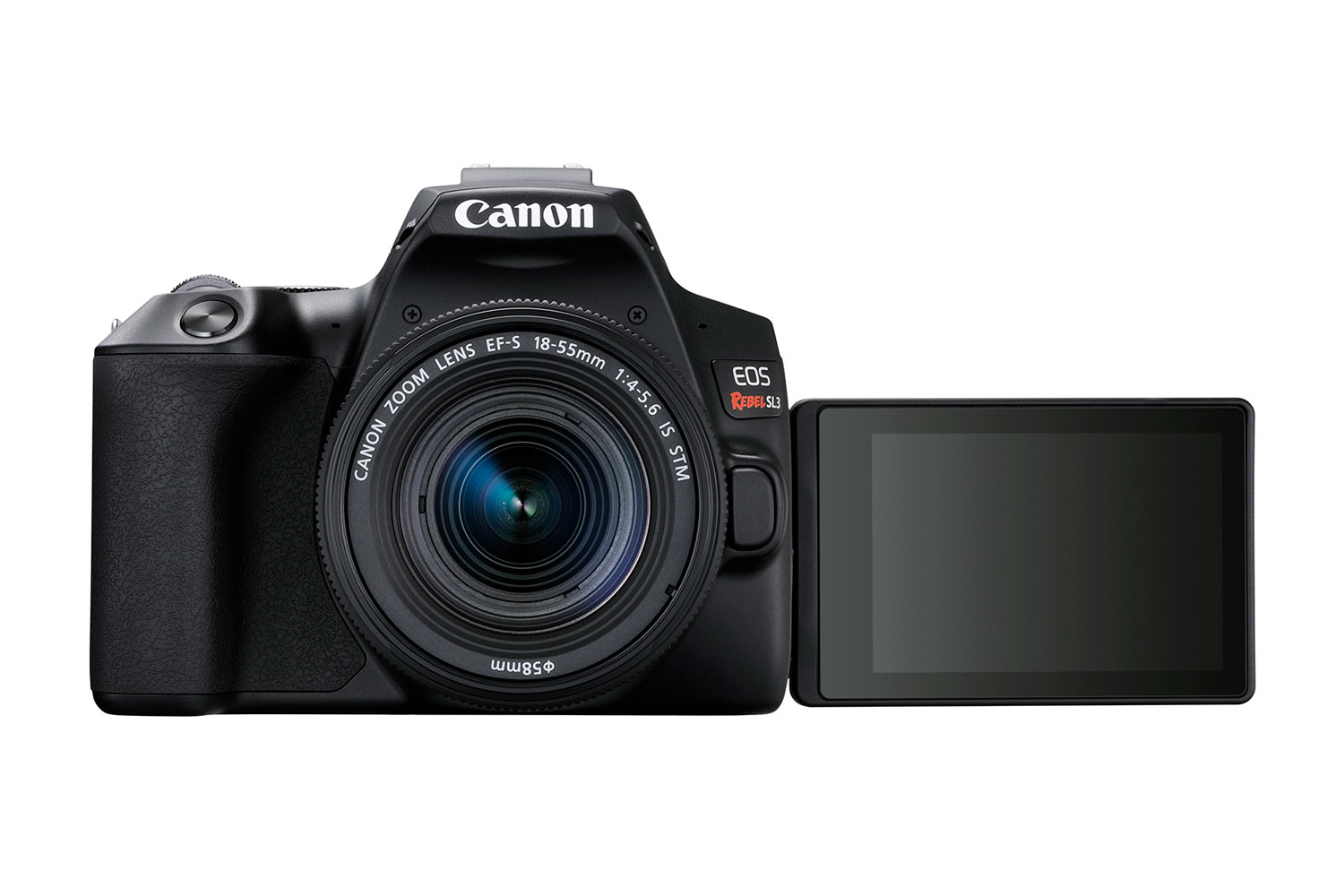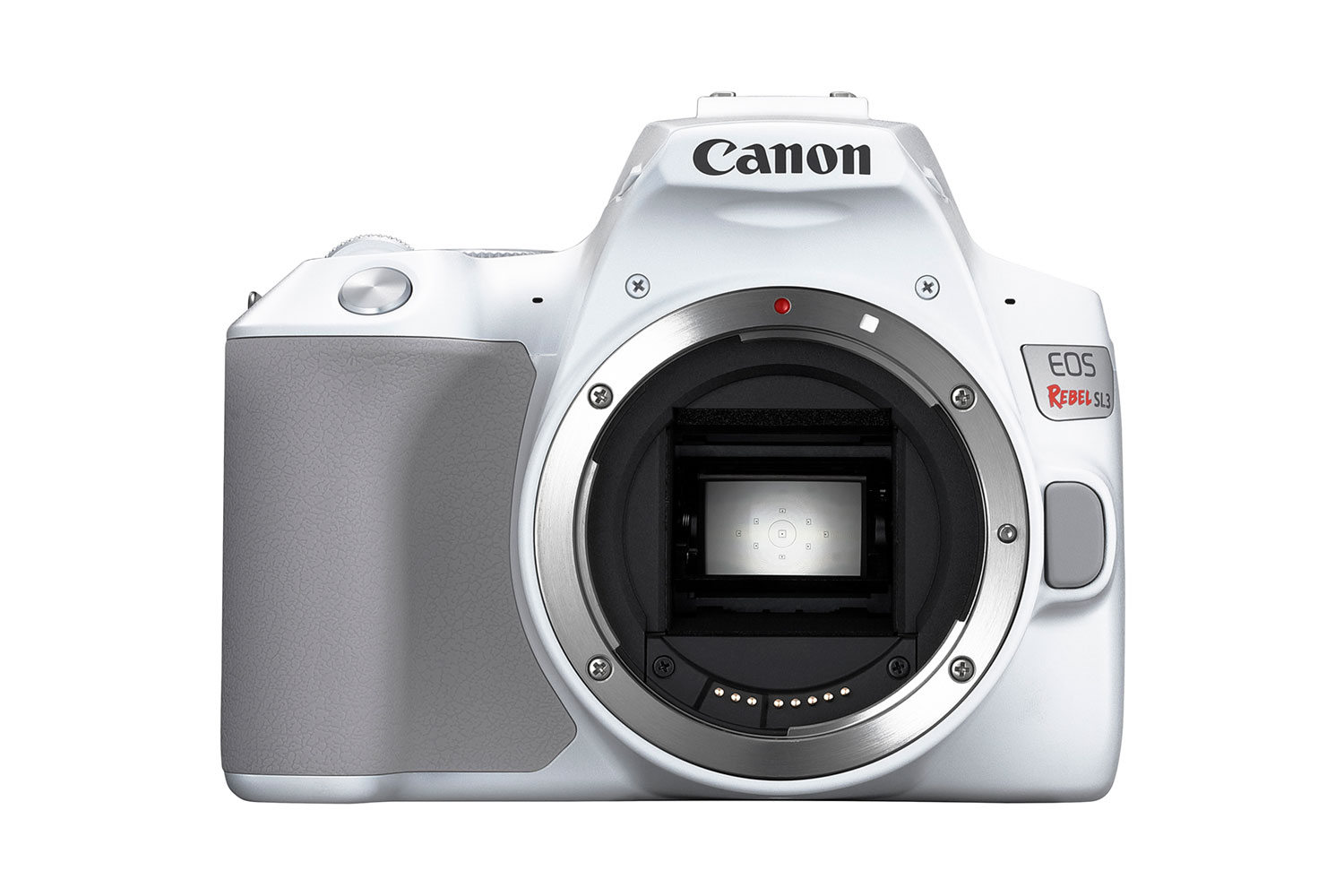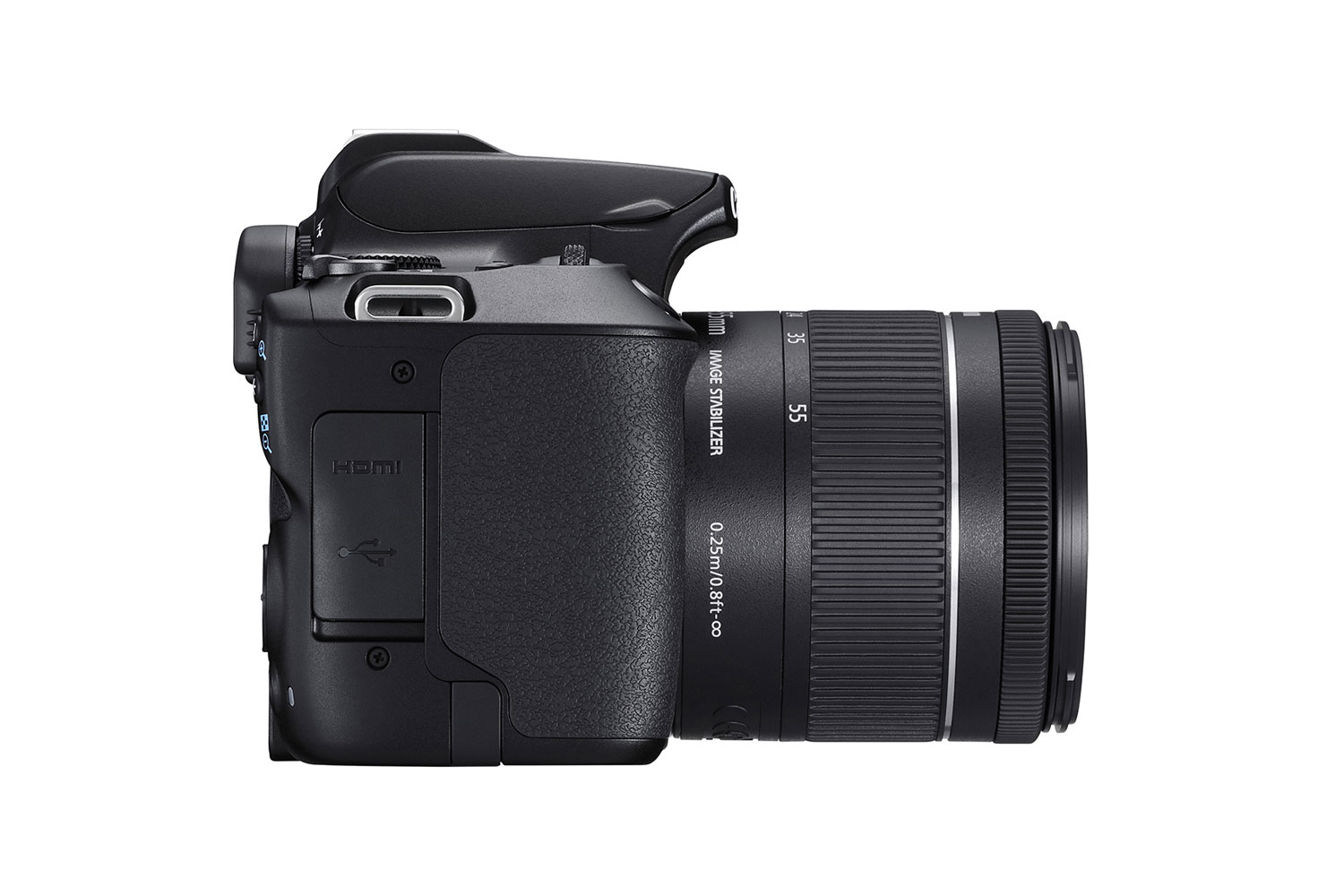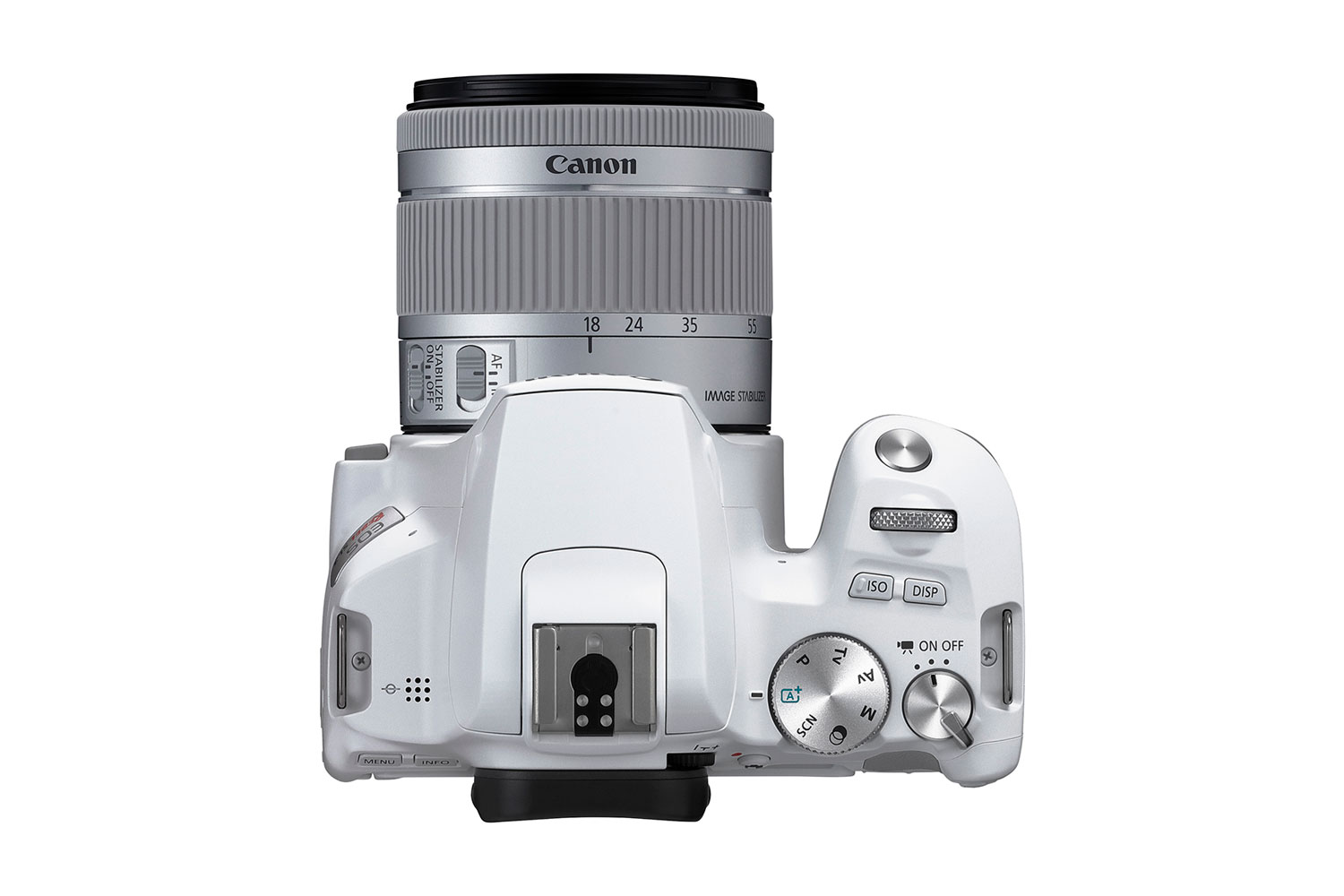Canon announced the EOS Rebel SL3 DSLR on April 10, a camera that sounds an awful lot like a mirrorless EOS M50 wrapped up in a DSLR body. The SL3 is officially the lightest DSLR Canon makes, at 15.8 ounces, and looks just about identical to the SL2 it replaces. But what it really is is an entry-level camera for people who would prefer mirrorless, but are still stubbornly stuck on the idea of a DSLR’s optical viewfinder.
By Canon’s own admission, the SL3 is a “light to medium update” over the SL2. It has a 24-megapixel APS-C sensor, 9-point viewfinder autofocus system, a fully articulating LCD, and a 5-frames-per-second continuous shooting speed — all equal to the SL2. Many of the new features it does offer — including 4K video, 143-point Dual Pixel Autofocus, eye-detection autofocus, and Creative Assist mode — concern live view operation, where images are framed on the LCD screen rather than through the optical viewfinder. In other words, when the SL3 basically behaves like a mirrorless camera.
During a press call, Canon made it clear that are some people who still prefer an optical viewfinder, apparently, even when the headline features of a DSLR work only in live view mode. But anecdotal evidence and sales numbers suggest this group of people can only be declining in number.
Still, a DSLR does have one major advantage over a mirrorless camera: Battery life. The SL3 boasts a very impressive CIPA rating of 1,630 shots on a fully charged battery when using the optical viewfinder. That’s well over twice what the SL2 can do, and nearly seven times the battery life of the mirrorless M50 (in live view mode, the SL3 manages 350 shots per charge). This makes the SL3 a good option for travel, particularly camping and backpacking where you may not be able to charge the camera every day.
It should also be an easy camera for new photographers to pick up and learn on — although, not any easier than the EOS M50. The Creative Assist mode lets beginners make creative adjustments that affect the live view image in real time, using touchscreen tools labeled in English. Among other choices, you can change exposure using the “brightness” slider or adjust white balance using the “warm” or “cool” presets.
Also new is the Smooth Skin setting, which we imagine will combine nicely with the 180-degree rotating screen to produce perfect selfies.
Unfortunately, 4K video can still not be combined with Dual Pixel Autofocus, a problem shared with the M50 and even the full-frame EOS RP. In 4K mode, you’re stuck with slower contrast-detection autofocus, which may make the feature too frustrating for novices to even bother with it.
The Canon EOS Rebel SL3 starts at $600 for the body only, or $750 with an 18-55mm f/4-5.6 stabilized kit lens. While that’s cheaper than the launch price for the EOS M50, current rebates bring the mirrorless camera to just $649 for the kit with the 15-45mm lens.
